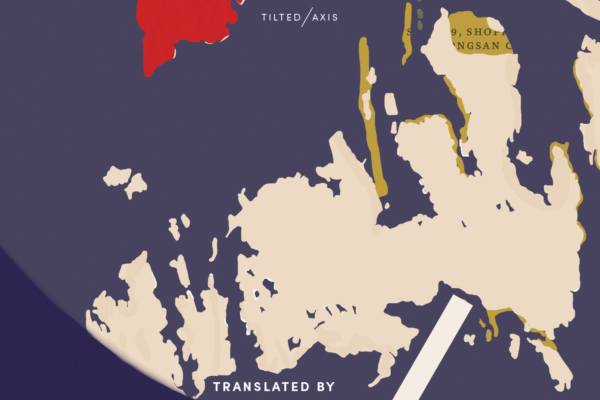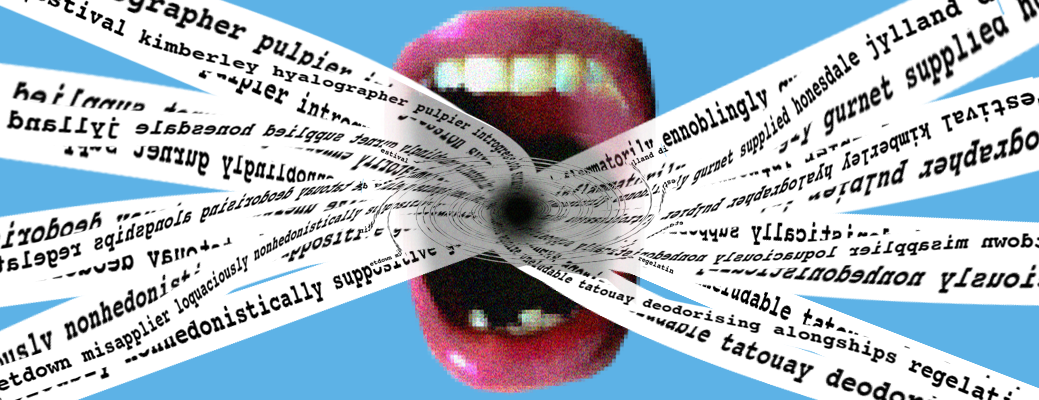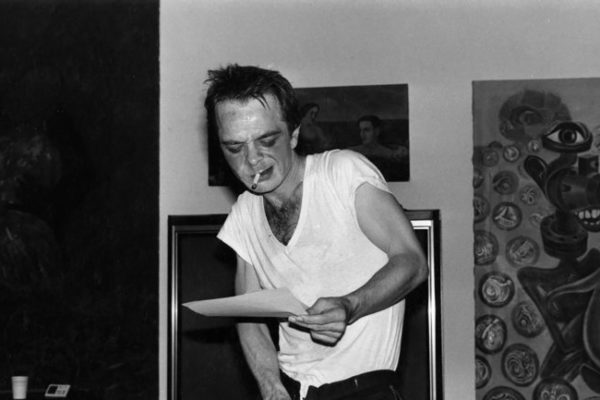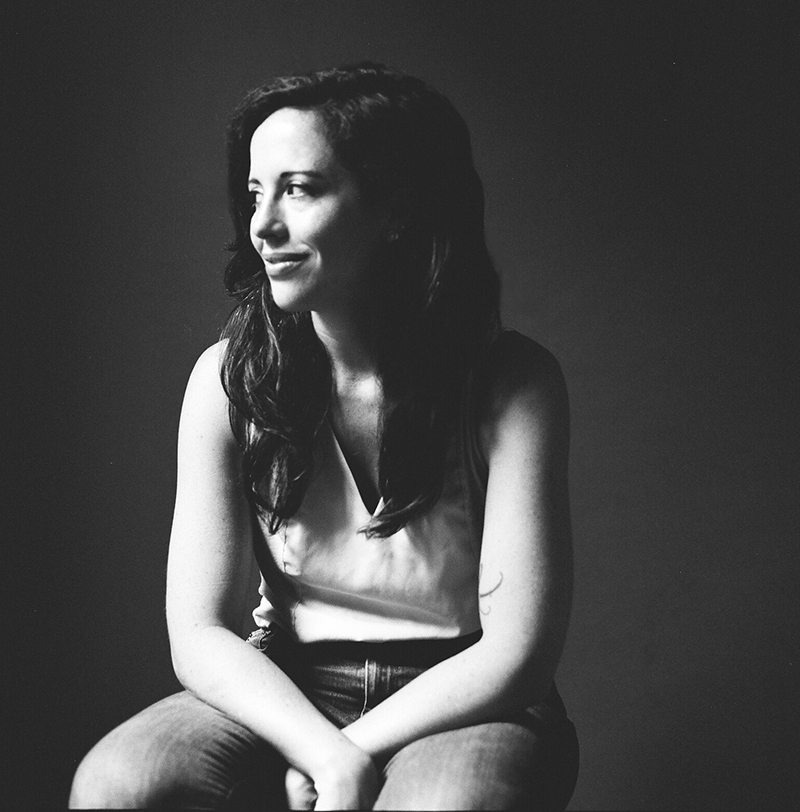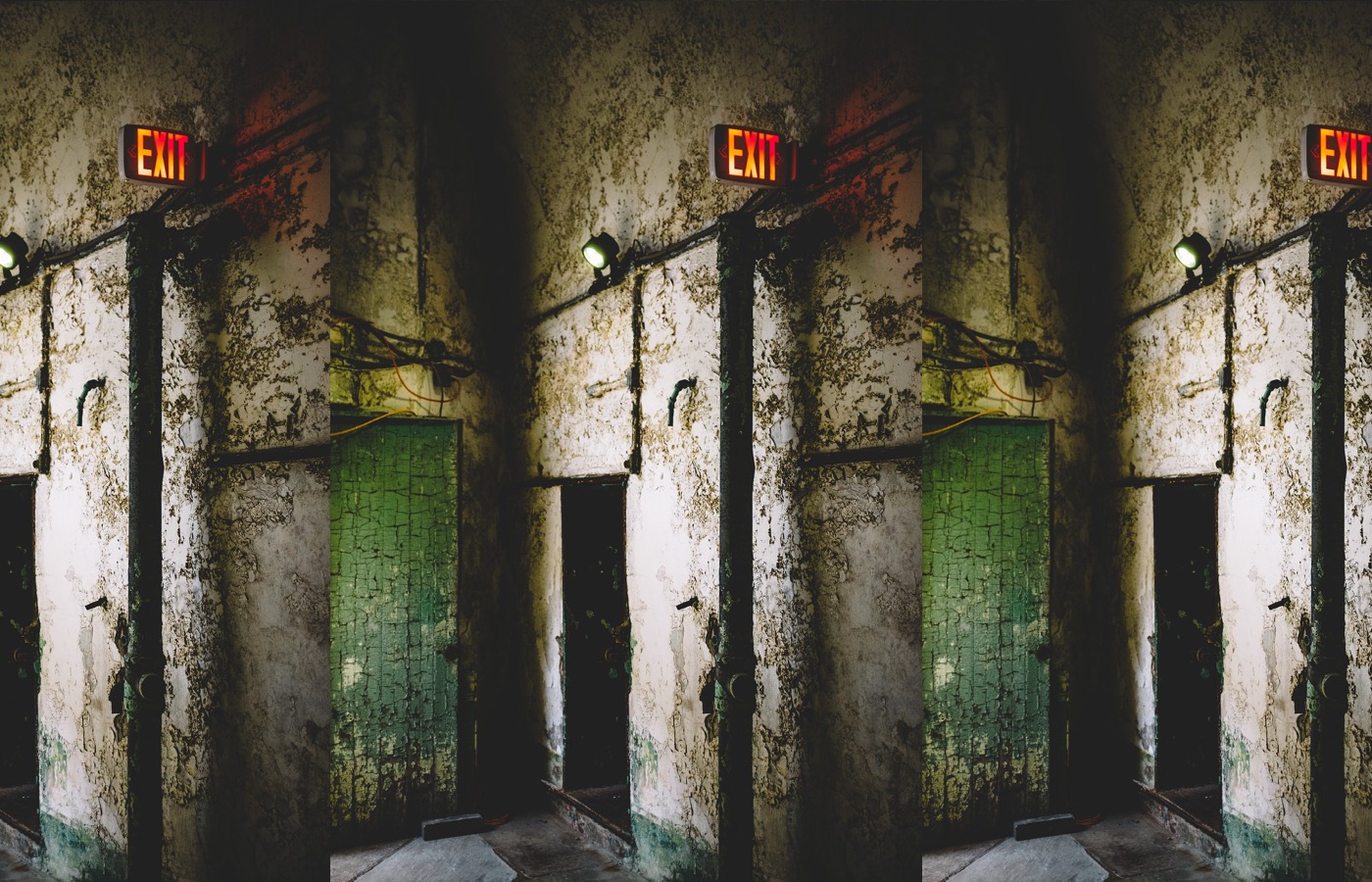Interview with Deborah Smith, Publisher and Editor at Tilted Axis Press
By Cassie Davies
Outstanding non-English literature has faced tremendous difficulty crossing the borders of domestic publication imposed by the publishing industries of the United States and the United Kingdom. In the US and UK, only three percent of all books published are works in translation, and an even smaller percentage of that is literary fiction and poetry. Tilted Axis Press (TAP), a not-for-profit literary publisher founded in 2015 and based in south London, is dedicated to resolving this issue by translating and publishing fiction from Asia and Africa to the United Kingdom. TAP’s aim is to diversify representation of authors in publishing. So far, TAP has published two exceptional books from marginalised voices: Panty, written by Sangeeta Bandyopadhyay and translated from Bengali by Arunava Sinha, and One Hundred Shadows, written by Hwang Jungeun and translated from Korean by Jung Yewon. TAP’s forthcoming titles include books originally written in Indonesian, Thai, Uzbek and Japanese.
Tilted Axis Press was founded by Deborah Smith, an English-Korean translator who translated Han Kang’s The Vegetarian, winner of the Man Booker International Prize this year. Smith began learning Korean at the age of 21, after she finished her undergraduate degree in English Literature at the University of Cambridge. She noticed a dearth of English-Korean translators, so she merged her passion for reading and writing and, in 2010, began an MA in Korean Studies at SOAS University of London (the only Higher Education institution in Europe specialising in the study of Asia, Africa, and the Near and Middle East), which led to a PhD in Korean literature. Smith is one in a small handful of UK-based Korean literature translators. In the past six years, she has translated two novels by Han Kang, The Vegetarian and Human Acts (both Portobello, UK, Crown, US), and two by Bae Suah, A Greater Music (Open Letter 2016) and Recitation (Deep Vellum 2016). In 2016, Smith was awarded the Arts Foundation Award for Literary Translation.
One Hundred Shadows, released at the beginning of October 2016, is the latest novel published by TAP. Jungeun, the author, is a rising talent in Korean literature, having been awarded Korea’s prestigious Daesan Award for One Hundred Shadows after its original-language publication in 2010. The Daesan Literary Awards are presented yearly to works in the literary categories of poetry, fiction, drama, criticism and translation. The award-winning titles are given a generous sum of money, and are often published and translated overseas. Jungeun’s novel is set in a slum electronics market in central Seoul, where Eungyo and Mujae fall in love while working as repair-shop assistants. Jungeun’s characters, however, are affected by the confines of their fraught labour conditions and dire socio-political realities, which have a heavy psychological impact. The book exposes a different image of life in South Korea compared to Western media depictions, outside the hyper industrialised areas, pointing to the stigmas associated with soaring depression and anxiety rates in Asia. It is a reality that often goes underrepresented in fiction, and one which TAP has given English readers access to.
There is much more to look forward to from TAP in the way of experimental fiction, foreign voices, and intersectional thinking. I got in touch with Deborah Smith to find out about the work behind Tilted Axis Press, their forthcoming titles, and the position of translation, and translators, in the publishing industry.

Cassie Davies: I’d like to know more about how your ideas for Tilted Axis Press originated. What are your objectives?
Deborah Smith: The idea initially came out of my own work as a translator, getting an insider’s view of the publishing industry and discovering some of the implicit biases preventing certain books from making it through into English. So our main objective is to subvert or circumvent as many of those biases as possible by publishing under-represented writing, which is an intersection of original language, style, content, and often its author’s gender. To publish it properly, in a way that makes it clear that this is art, not anthropology. To spotlight the importance of translation in making cultures less dully homogenous. To push for better rates and recognition for translators themselves. And to improve access to the UK publishing industry – we recently hired our first intern, who we’re proud to be paying a proper wage. Not only are unpaid internships exploitative, they’re one of the main forces keeping UK publishing a primarily white middle-class industry, which has a direct knock-on effect on what gets published and how.

CD: On your website, you talk about Tilted Axis’s mission of publishing literature that is marginalised, and making international literature more accessible. Why do you think translation isn’t very accessible (aside from the language barrier…)? And do you think that the current market for translation is changing, especially with Han Kang winning the Man Booker International?
DS: It’s definitely changing – a survey commissioned by the Man Booker foundation found that sales of translated fiction are growing, with translations outperforming English-language originals. I think part of that has to do with big-name successes like Ferrante and now Han Kang – their cult status among readers has made publishers completely reconsider the idea that translations ‘don’t sell’, or are somehow less accessible to the general public than other books. Only a tiny percentage of all books published in the UK (and US) are translations, and within this, only around a third are by women – yet the two authors with the biggest crossover appeal, both critically-acclaimed and selling in huge numbers, are women, whose works are being read in translation. It just goes to show that the conservative model of commercial publishing, which sees translation as an unknown quantity, difficult to fit into any formula for success, misses out on the best literature the world has to offer. And it only takes one book to be a hit for readers to start actively seeking out other books from the same language, so a single big success like The Vegetarian winning the Man Booker International will have a knock-on effect – South Korean literature could well be the next big thing.

CD: I’m interested in how you discover your authors. How did you come across Sangeeta Bandyopadhyay and Hwang Jungeun, and their translators?
DS: It varies, depending on the language – Indian authors very often have their work translated into English already, but published exclusively within the Subcontinent, so it’s a case of me researching cool-sounding books on the internet and finding a way to order them. So Sangeeta and Arunava Sinha already came as a pair (unsurprisingly, given he’s almost single-handedly responsible for Bengali literature in English). I can read Korean books in the original, of course, and I made a mental note to check out Hwang Jungeun when Han Kang mentioned her in an interview we did as her favourite from the younger generation. The novel we’re about to publish, One Hundred Shadows, won the prestigious Daesan Award, so the Daesan Foundation had already commissioned Jung Yewon to translate the book into English by the time I snapped it up for TAP. Daniel Medin, who was one of the judges of this year’s Man Booker International Prize, also teaches Comparative Literature at the American University of Paris; he introduced me to Thai translator Mui Poopoksakul, one of his students, who’d translated a short story collection as part of her Comp Lit MA.
CD: I’d also like to know more about the translators, especially their placement in the publishing industry. Translators, like international literature, are often marginalised in publishing, even though without them we wouldn’t be able to access these amazing and unusual books which open borders. As a translator, what are the difficulties you’ve come across? And what does Tilted Axis Press aim to do for the translator?
DS: It’s true that literary translation is too often underpaid and under-appreciated – the standard rate calculated by the UK Translators’ Association, which is in fact intended as a base rate but which is what the majority of us receive, is less than the minimum wage when you work it out by hour. Over the last few years, though, there does at least seem to have been an improvement in translators’ public profile and visibility: an increased awareness on the part of publishers, reviewers and readers that literary translation is a creative art in its own right, about as far away from humdrum word-substitution as its possible to get. So its heartening to see more and more reviewers acknowledging that the language, tone, style of a translated book wasn’t automatically replicated in the English, but artistically recreated. Similarly, publishers have woken up to the fact that, rather than being something to hide in fear that it might ‘put people off’, translation is itself a selling point – that many translators are engaging public speakers, immersed in the literary world, able to articulate to a general public just what is so fascinating about both the books they translate and the work of translating them.
In other words, giving a translated book the best possible chance of success means encouraging the translator to be actively involved in its publicity – which means paying them a proper rate, including a royalty (these are usually tiny, only 1 or 2% of RRP, so it’s often only a nominal amount, but as a sign that the publisher respects the translator and wants to offer them a stake in their book’s reception, it can be invaluable). At Tilted Axis, we pay our translators the TA rate as standard (currently £90 per 1000 words) as well as offering a 1% royalty on print books, 5% on ebooks. Crucially, the upfront fee is not calculated as an advance against royalties, meaning the translator will receive their royalty from the first copy sold.
Our translators all have bio pages on our website, just as our authors do; they’re named on the front cover of their book; we encourage reviewers to name them, aim to organise interviews or other publicity for them, and shout about them through our various social media channels (including their many other projects, not just whatever they’re doing with us). Our translators are all amazing people in their own right, which makes our job even easier – Arunava Sinha is such a celebrity in Indian literary circles that we had people at the London launch of Panty coming up to tell us that they know him; Mui Poopoksakul is currently organising a Thai issue for Words Without Borders, as well as helping us make contact with the Thai cultural ministry; Morgan Giles’ website feature on female Japanese authors who ought to be translated was what led me to Yu Miri, who Morgan is now translating for us.

CD: Finally, what do you have lined up for Tilted Axis Press? What other languages will we see translated?
DS: We’ve got another three books lined up for 2017 – first up is The Crying Parties by Prabda Yoon, very possibly the only translation of Thai fiction to be published in this country, for which we’re delighted to have been granted an English PEN award. It’s Berlin-based Mui Poopoksakul’s first translation, and offers a witty, postmodern take on urban Thai life around the start of the 21st century. Next is the debut novel by an extremely cool young South Korean author, Han Yujoo, who also translates English literature into Korean, is a huge Thomas Bernhard fan and heads her own micro publishing house called Oulipo Press. It’s called The Impossible Fairytale, translated by Janet Hong, and the US edition will be published by Graywolf. An extremely dark tale of violence and neglect, but its the experimental language and metafictional flourishes that make it truly magical. Our final 2017 title is The Devils’ Dance, the first of Hamid Ismailov’s Uzbek novels to be translated into English. Hamid wrote in Uzbek earlier in his career, then switched to Russian – his Russian books have been published by the likes of Vintage and Peirene Press, to great acclaim, but nothing from Uzbek ever made it through, largely due to a lack of translators. Luckily Donald Rayfield, who already translates from Russian and Georgian, fell in love with the book in its Russian translation and taught himself Uzbek (as you do) for this project: a real-life Uzbek poet, awaiting execution in 1930s Tashkent, tries to finish his novel set in the flourishing culture of 1840s Turkestan.
Cassie Davies is a London-based writer and Assistant Editor of The White Review.
